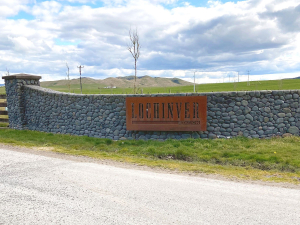Beef Progeny Test strengthens NZ beef genetics
Mating wrapped up last month at the across-breed Beef Progeny Test on Pāmu’s Kepler Farm in Manapouri.
 Lochinver Station will play host to an Informing New Zealand Beef genetics programme field day next month.
Lochinver Station will play host to an Informing New Zealand Beef genetics programme field day next month.
Farmers will get an opportunity to see the Informing New Zealand Beef (INZB) genetics programme in action at a field day at Lochinver Station next month.
The event on 5 March will provide insights into the seven-year INZB programme, which aims to improve profitability and enhance sustainability across the beef industry through the development and adoption of improved genetics.
Lochinver on the Rangiaiki Plains near Taupo is one of New Zealand’s largest farms and is a Beef Progeny Test site for the programme supported by Beef + Lamb New Zealand (B+LNZ), the New Zealand Meat Board and the Ministry for Primary Industries’ Sustainable Food & Fibre Futures Fund.
The across-breed Progeny Test, which builds on previous progeny tests, uses Angus, Hereford and Simmental genetics to identify the performance of agreed-on traits linking with international beef and dairy beef genetics.
It will provide the ability to demonstrate the differences and similarities between the breeds, along with the benefits of hybrid vigour, and to evaluate good bulls on the same basis.
The first round of artificial insemination of Angus cows at Lochinver, with Angus, Hereford, and Simmental bulls, was carried out in January 2023. A further round has been undertaken this year.
The field day will include insights into the station’s operation with Steve Smith, business manager for Lochinver owner Rimanui Farms. There will also be an opportunity to view the cattle involved in the Progeny Test.
B+LNZ Genetics will provide updates on the programme, including results from the Beef Progeny Test data. Accredited Structural Assessment Technician Bill Austin will provide a beef class structural assessment demonstration.
Ginny Dodunski, programme manager with the B+LNZ-funded Wormwise project, will lead a session on parasite management, and Melissa Snowden, agribusiness technical support for Silver Fern Farms, will be sharing perspectives on carcase traits.
In addition to developing a beef genetic evaluation system to support a sustainable beef farming industry in New Zealand, the INZB programme is creating easy-to-use tools to enable data to be efficiently collected, managed, analysed and used by commercial farmers to make profitable decisions for their operation.
For more information and to register for the field day, visit: https://beeflambnz.com/events/blnz-informing-new-zealand-beef-progeny-test-field-day
The Meat Industry Association of New Zealand (MIA) today announced that Chief Executive Officer Sirma Karapeeva has resigned from the role.
The winners of the 2026 Hawke’s Bay/Wairarapa Dairy Industry Awards were announced at the annual awards dinner held at Copthorne Solway Park in Masterton on Thursday evening.
Environment Southland is welcoming this week’s decision by the Environmental Protection Authority (EPA) to approve the release of Blaptea elguetai, a leaf‑feeding beetle that will help control the highly invasive Chilean flame creeper.
This March, the potato industry is proudly celebrating International Women’s Day on 8 March alongside the International Year of the Woman Farmer, recognising the vital role women play across every part of the sector — from paddocks and packhouses to research, leadership, and innovation.
Fruit trader Seeka posted a record profit and returns to shareholders in 2025.
Recent weather events in the Bay of Plenty, Gisborne/Tairawhiti, and Canterbury have been declared a medium-scale adverse event.